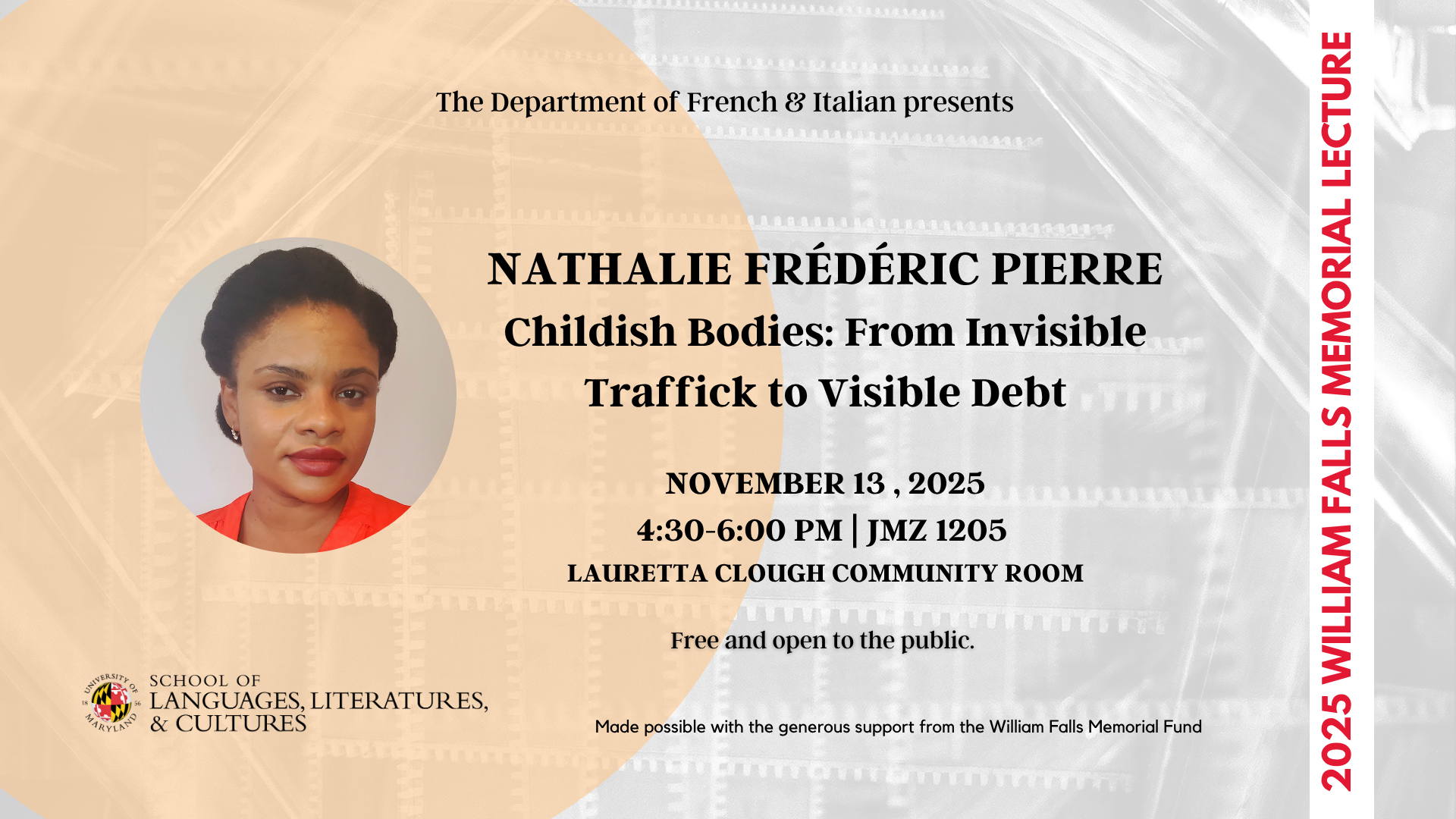Falls Lecture: Dr. Nathalie Frédéric Pierre

Falls Lecture: Dr. Nathalie Frédéric Pierre
Lecture Title: Childish Bodies: From Invisible Traffick to Visible Debt
Summary: This 30-minute lecture explores the trafficking of Black children into the U.S. South after the Haitian Revolution, raising the question: How could the world’s first Black republic, founded in freedom, see its children sold abroad? Placing Haiti within the framework of “second slavery,” I extend Dale Tomich’s insights on the plantation and global capitalism to the Haitian case. Within a year of independence, French forces in Santo Domingo trafficked free-born Haitian children to the Carolinas in exchange for rice, aided by U.S. neutrality and British blockades. Drawing on Haitian laws, newspapers, runaway ads, and military reports, I argue that Haiti’s struggle against slavery did not end in 1804 but continued into its first decade of independence.
Bio:
Dr. Nathalie Frédéric Pierre is an Assistant Professor of History at her undergraduate alma mater, Howard University. A historian of Black sovereignty and Haitian statecraft, her research received support from the National Endowment for the Humanities and, most recently, by the Mellon New Directions Fellowship, which allows her to expand her historical work into legal studies and deepen the interdisciplinary reach of African and African Diaspora Studies.
Her scholarship appears in The Journal of Haitian Studies, Public Books Cultural Dynamics, and the edited volume Remembrance: Loss, Hope, Recovery after the Earthquake in Haiti, among other forums. She has also held fellowships as a Postdoctoral Fellow at the Graduate School of the City University of New York’s Institute for Research on the African Diaspora in the Americas and the Caribbean (IRADAC), a Black Studies Dissertation Fellow at the University of California, Santa Barbara, and a Ronald E. McNair Scholar at Howard University.
Public engagement is central to Dr. Pierre’s work. She served as board chair (2011–2017) of the Flanbwayan Haitian Literacy Project, an English Language Learner (ELL) advocacy group that supports migrant Haitian teens in their educational journey in New York City, after surviving the 2010 Haitian earthquake. She regularly lectures in Haitian Creole to community-based organizations, recognizing that engaging monolingual Haitian audiences is critical to amplifying their presence in the public sphere. By prioritizing language accessibility, she bridges academic research and community knowledge, ensuring that Haitians themselves remain central to conversations about their history.

